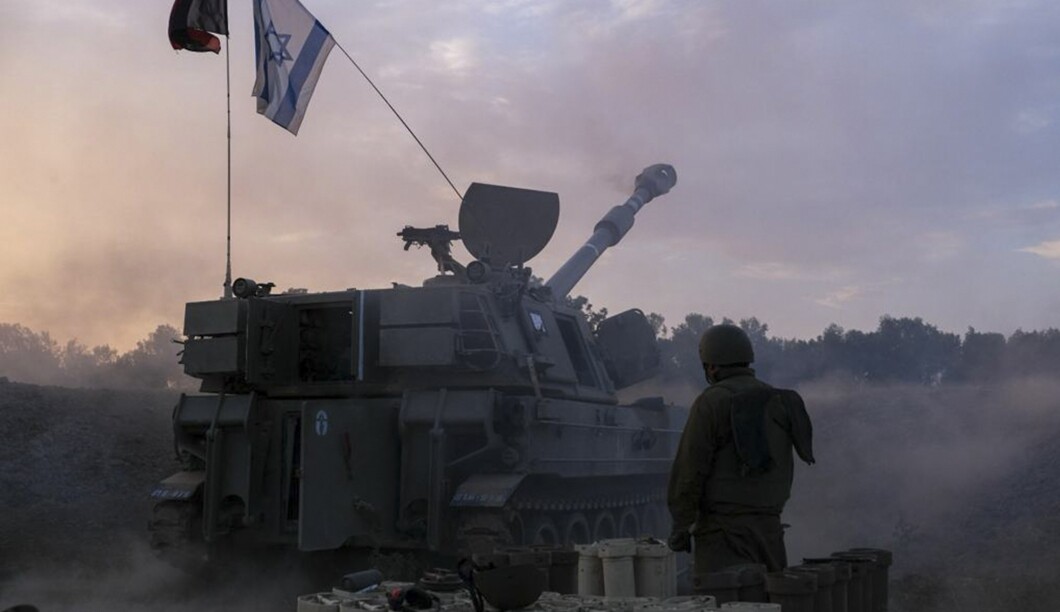
One month ago, Hamas terrorists slaughtered roughly 1,400 Israelis, the overwhelming majority of whom were civilians, in the worst terror attack in the Jewish state’s 75-year existence.
As Israel grappled with the loss of sense of security and criticism directed at Israeli leaders for failing to prevent the attack, the military has launched a significant military operation that’s been the subject of heavy international criticism while Hamas has continued to carry out attacks against its Israeli neighbors. Back home in the United States, President Joe Biden’s Democratic Party is bitterly divided over calls for a ceasefire and whether to continue its unconditioned aid to Israel.
NEWSOM ADDS TO PRESIDENTIAL BID SPECULATION WITH DONATION TO SOUTH CAROLINA MAYORAL CANDIDATE
The brutality and scale of the attacks on Oct. 7 shocked Israeli officials and Western leaders alike, who compared the atrocities to ISIS behavior. The attacks marked the deadliest day for Jews since the Holocaust, and the death toll could continue to increase, as more than 200 people are believed to be held hostage in Gaza.
The terrorists broke through the border wall between Gaza and Israel and went community by community killing entire families, often brutally, such as by burning people alive. Others were tortured, and parents were murdered in front of their children.

Israeli officials, who were caught off guard on Oct. 7, have declared war on Hamas, which has been the de facto government of Gaza for roughly 15 years. They have said their goal is to ensure Hamas is removed from power and no longer has the ability to launch attacks against Israel.
“I think a takeaway [of the Oct. 7 attack] is to avoid getting too confident in our own capabilities,” Brad Bowman of the Foundation for Defense of Democracies told the Washington Examiner. “Israel has the best military in the Middle East, is pound for pound quite a fighting force, is technologically advanced. And yet, there was an intelligence failure that enabled this horrible thing to happen.”
Western countries should start listening to adversaries’ leaders who threaten to attack them, Bowman said.
“We might just — before we arrogantly assume that we know better than what they’re saying or that we know enough to say that we can dismiss that — we might just want to pause for a moment and consider if they actually mean it, that they actually mean what they say,” he added. “There still are, as we’ve seen in Russia, authoritarian bullies that want to seize territory with military force, and there still are terrorists who want to kill us.”
The initial stage of Israel’s response was a heavy aerial bombardment consisting of thousands of airstrikes that ravaged Gazan infrastructure and killed thousands. Israeli military officials say they only attempt to strike military targets, but they have killed thousands of civilians, according to the Biden administration.
The Hamas-controlled Gaza Health Ministry said on Monday that the death toll had eclipsed 10,000, with another 25,000 wounded in the war, though those totals include both civilians and combatants. The administration has also claimed the ministry’s data may not be valid because Hamas is not a reliable source. As the humanitarian situation deteriorates in Gaza, with limited aid able to get into the enclave, Israel has refused calls for a ceasefire, which it argues would simply allow Hamas to plan for future attacks.
“We’ve learned that Hamas has capabilities beyond what either U.S. or Israeli intelligence were able to foresee, and we’ve also learned that Israeli intelligence and security saw major failures on Oct. 7, something the Israeli public will have to reckon with in the coming months,” Tuqa Nusairat, an expert on U.S. policy in the Middle East for the Atlantic Council, told the Washington Examiner. “Israel’s response so far appears to be more vengeful and without much strategy. The scale of destruction that Israel has inflicted so far will take decades to recover from and will push Palestinians in Gaza further from any prospect of peace.”
Biden spoke with Israeli Prime Minister Benjamin Netanyahu on Monday, and the two leaders discussed the possibility of “tactical pauses” to help civilians, National Security Council coordinator John Kirby said.
The administration has remained supportive of Israel in its response to the Oct. 7 attacks, including providing it with military aid, though it has faced increasing pressure at home to convince Israel to do more to reduce civilian casualties. More liberal members of Biden’s party have denounced his stance, while there have been concerns that his response to the situation could reduce his support among certain demographics ahead of next year’s election.
The Department of Defense has surged both troops to the region, as well as military resources to Israeli forces. They are there in part to deter any other adversary of Israel from getting involved in the war and expanding it to a regional conflict — or larger. Despite their presence, U.S. forces in Syria and Iraq have been attacked nearly 40 times since the war broke out by Iranian proxies in the region, while about 45 troops have reported injuries in those incidents.
“I think the No. 1 policy goal of the Biden administration — other than supporting Israel and hopefully giving it the time, the space, and the means to defend itself and deprive Hamas the means of murder — is to deter Tehran and its terror proxy in Lebanon, Hezbollah, from opening in a northern front in Israel. Because if we think the going is tough in Gaza, a major front in the north with Hezbollah would be an order of magnitude worse,” Bowman added.
Hezbollah chief Sayyed Hassan Nasrallah signaled last week in his first public comments since the outbreak of the war his hesitancy to widen the war on Hamas’s behalf.
CLICK HERE TO READ MORE FROM THE WASHINGTON EXAMINER
Back at home, before the attack, the major storyline in Washington, D.C., was the House Republicans’ decision to oust former Speaker Kevin McCarthy (R-CA), and the party was hotly debating whether the Republican-led House would support additional aid to Ukraine, which remains an uncertainty.
“In the immediate term, the conflict in [the] Middle East will have to take priority, especially if Iran or its proxies in Lebanon, Yemen, or Iraq decide to enter the conflict. This will in turn play into Russia and China’s favor, something the U.S. should be very concerned about,” Nusairat added.





